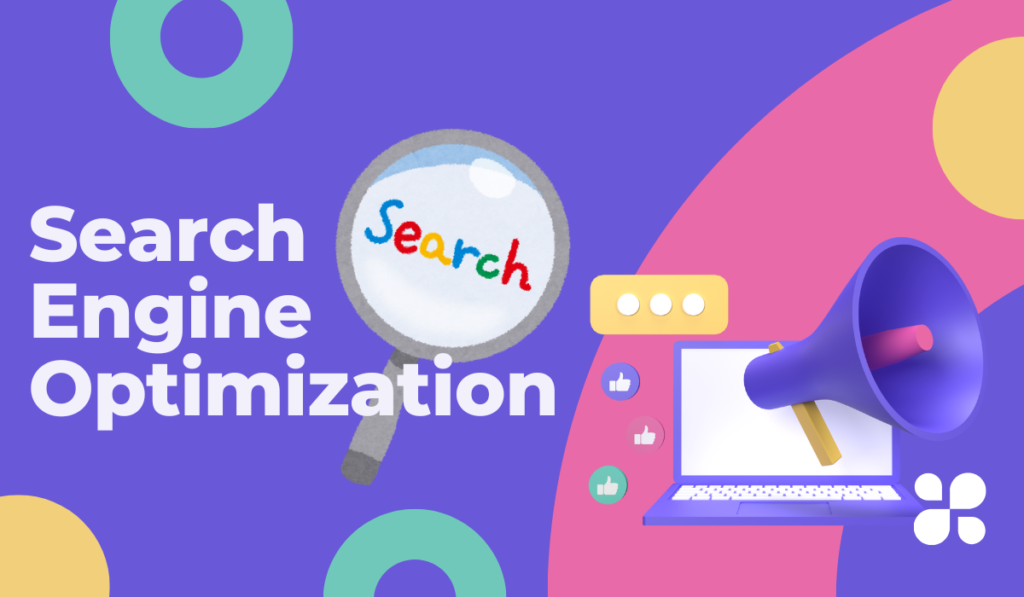You have optimized your website’s images, done thorough keyword research, improved internal linking, and built a solid site structure. Yet, your site isn’t ranking higher on Google.
The reason? You’ve only tackled half of the SEO puzzle. The other half, off-page SEO, is essential for creating a powerful off-site presence.
Off-page SEO plays a vital role in boosting organic traffic, improving revenue, and increasing search engine rankings. It’s responsible for more than 50% of ranking factors.
Yet, many businesses overlook this crucial aspect.
Off-page SEO requires dedication, effort, and consistency for lasting success. To help you start, we’ve created a complete guide on off-page SEO optimization.
Overview: Off-page SEO
The term “off-page SEO” describes activities you perform outside of your website to raise its search engine rating.
One of the main strategies of off-page SEO is link building. Google’s PageRank algorithm uses the number and quality of backlinks to assess how trustworthy and important a page is.
Overall, off-page SEO supports on-page efforts, helping make your site appear credible and reliable to both search engines and users.
Why Does Off-page Search Engine Optimization Matter?
Off-page Search engine optimization is vital for boosting your website’s presence and authority. Search engines like Google use off-page factors to evaluate how trustworthy and relevant your site is. This means that off-page efforts contribute significantly to where your site ranks in search results.
A key element of off-page SEO is link building. When other reputable websites link to yours, it signals to search engines that your content is valuable and worth recommending. The quality and quantity of these backlinks can directly impact your ranking. High-quality links from authoritative sources are especially valuable and can increase your credibility.
Social media plays a significant role in off-page SEO. Sharing your content on platforms like Facebook, Twitter, and LinkedIn helps increase its reach. If your content is shared widely, it can drive more traffic to your site and signal to search engines that your content is engaging.
Brand mentions are another off-page factor. Even if they don’t include a direct link, mentions of your brand across the web can boost your authority. This shows search engines that people are talking about your brand and engaging with it.
Guest blogging is an effective strategy for off-page SEO. By writing articles for other respected sites, you can include links back to your own website. This helps build relationships with other sites in your industry and drives referral traffic.
Off-page SEO also includes forum participation, influencer outreach, and participating in industry-related discussions. These efforts increase brand awareness and drive more visitors to your website.
Off-page SEO helps build your site’s trustworthiness and shows search engines that your content is valuable. This increases the chances of ranking higher in search results, which can lead to more visibility, traffic, and growth for your website.
Also Read: Major Google Algorithm Updates, Explained – Core Update
Off-page SEO Techniques
- Link Building
- Social Media Marketing
- Content Marketing
- Local SEO
- Commenting
- Document sharing
- Question and answer
- Online Reviews
1. Link Building

Link building is acquiring backlinks from other websites to your site. These backlinks act as trust and a signal to search engines that your content is valuable. High-quality backlinks from trusted sites are essential for boosting your website’s authority and ranking.
Importance: Links help search engines understand how different web pages are connected. The more authoritative links you have, the more trust search engines place in your site. This makes it a powerful way to improve your domain authority.
Benefits: Effective link-building can lead to higher search rankings, increased referral traffic, and enhanced credibility. It helps your site get noticed by search engines and users alike, leading to more organic visits and growth.
Strategy: Focus on earning high-quality links from authoritative sites. Use strategies like guest blogging, creating shareable content, and collaborating with other businesses. Avoid spammy link practices, as they can harm your ranking.
2. Social Media Marketing

Social media marketing involves promoting your content and engaging with your audience on platforms like Facebook, Twitter, and LinkedIn. It’s a way to reach a larger audience and create more opportunities for sharing your content.
Importance: Social signals, such as likes, shares, and comments, indicate that your content is engaging and relevant. While social media links might not be direct ranking factors, they drive traffic and help content get noticed by potential link sources.
Benefits: Social media marketing increases brand awareness and can drive significant traffic to your website. It helps you connect with your audience, build relationships, and gain more exposure. This can result in more shares, backlinks, and mentions.
Strategy: Share valuable and engaging content regularly. Use hashtags, interact with your audience, and collaborate with influencers to amplify your reach. Posting at optimal times and leveraging paid ads can also boost engagement.
3. Content Marketing

Content marketing is creating valuable, informational, and shareable content to attract an audience. This includes blog posts, PDFs, videos, & articles. High-quality content encourages people to link to and share your work.
Importance: Good content is the foundation of any SEO strategy. When your content provides value, it naturally attracts links and social shares, enhancing your off-page SEO. It positions you as an authority in your particular field.
Benefits: Content marketing drives more traffic, improves your brand’s reputation, and boosts trust among users. When done consistently, it leads to more organic backlinks and helps you rank higher in search engine results.
Strategy: Develop content that solves problems for your audience. Create a mix of content types to keep users interested. Share your content on multiple platforms to expand its reach and attract backlinks. Also, remember E.E.A.T guidelines.
4. Local SEO

Local SEO focuses on optimizing your online presence to attract more business from relevant local searches. It includes activities like creating and managing your Google Business Profile, local listings, and geo-targeted content.
Importance: Local SEO is crucial for businesses looking to attract customers within a specific geographic area. It helps your business appear in local search results and map packs, driving more traffic to your physical location or website.
Benefits: Local SEO increases your visibility in local searches, which can lead to higher traffic, better brand recognition, and more in-store visits. It also helps build trust with potential customers in your area.
Strategy: Claim your business on Google Business Profile. Use location-specific keywords, get listed in local directories, and encourage satisfied customers to leave reviews. Engage in local events and sponsorships for brand exposure.
Also Read: Why is Digital Marketing Important For Any Business
5. Commenting

Commenting on relevant industry blogs and forums is a way to engage with a community and promote your expertise. It allows you to create connections and direct attention to your site by adding value to conversations.
Importance: Strategic commenting helps build relationships with others in your industry. It can also drive referral traffic and increase your exposure. Quality comments are more effective when they offer insights or answer questions.
Benefits: When done right, commenting helps you build authority and trust within your niche. It can increase your site’s visibility, drive traffic, and potentially lead to backlink opportunities.
Strategy: Engage in meaningful discussions by adding value to the conversation. Avoid spammy comments or over-promoting your site. Focus on building trust and credibility within the community.
6. Document Sharing

Document sharing involves posting useful documents like PDFs, presentations, and infographics on document-sharing sites. These documents usually contain links to your website and are accessible to a wide audience.
Importance: Document sharing provides an additional avenue to distribute your content and gain visibility. Search engines index shared documents, which can help in driving traffic and earning backlinks.
Benefits: Sharing documents can improve your website’s authority, increase brand awareness, and bring referral traffic. It also diversifies your content marketing strategy by reaching audiences who prefer downloadable content.
Strategy: Create documents such as PDF & PPT with valuable insights and clear formatting. Include relevant keywords and links to your website. Share these documents across different platforms to reach a broader audience.
7. Question and Answer (Q&A)

Question and answer (Q&A) platforms like Quora, Wantoask and Reddit allow you to provide answers to user questions. Answering with informative, well-crafted responses can establish you as an expert and link back to your content.
Importance: Q&A platforms are great for building authority and driving targeted traffic to your site. Providing helpful answers can increase your credibility and draw users interested in your expertise.
Benefits: Q&A activities boost brand visibility and help you reach potential customers. It can drive high-quality traffic to your site and foster engagement, potentially leading to shares and backlinks.
Strategy: Answer questions related to your niche thoroughly and provide useful information. Include links to relevant pages on your site when appropriate. Be authentic and avoid coming off as overly promotional.
8. Online Reviews

Online reviews on platforms like Google, Yelp, and industry-specific sites play an essential role in shaping public perception. Positive customer reviews build trust and enhance your virtual reputation.
Importance: Reviews are crucial for local SEO and user trust. Search engines take reviews into account when determining the reliability and authority of a website. More positive reviews can improve your site’s rankings.
Benefits: Good reviews attract more customers and improve click-through rates. They boost your reputation, which can lead to higher search engine rankings and increased traffic.
Strategy: Encourage happy customers to leave positive reviews. Respond to all reviews—positive or negative—to show that your business values customer feedback.
Conclusion
Off-page SEO is essential for building a strong online presence and boosting search engine rankings. By focusing on techniques like link building, social media marketing, content marketing, and local SEO, you enhance your site’s credibility and authority.
These strategies drive organic traffic and increase brand trust. Remember off-page SEO supports your on-page efforts, making your site more appealing to search engines and users. Consistent off-page optimization can lead to long-term growth and higher visibility in search results.
Interact with Our Amazing ‘Image Tools’:-
- Image Compressor
- Image Cropper
- Image Cropper (Circle)
- Image Resizer
- Flip & Rotate Image
- Blur Image
- Image Converter


